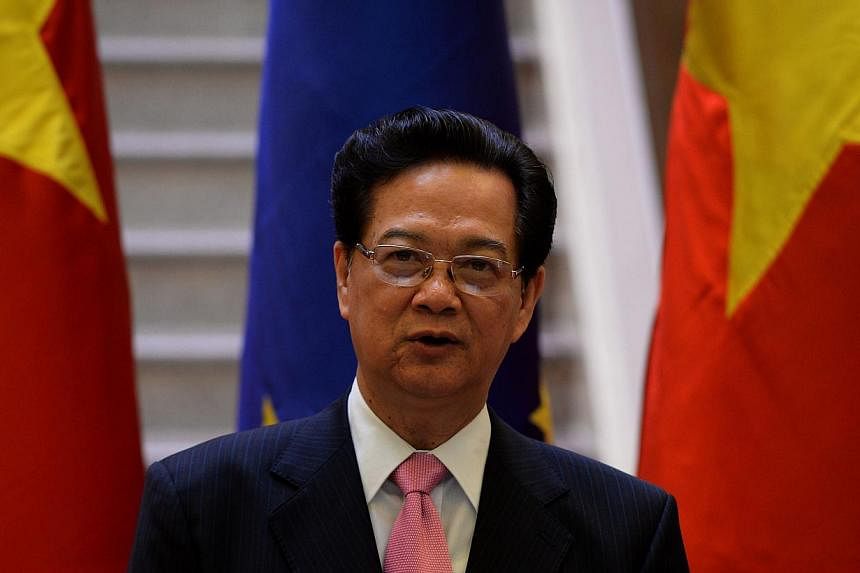ASEAN and China should step up negotiations for a binding Code of Conduct (COC) to resolve the South China Sea dispute in accordance with international laws and prevent a conflict from flaring up, Vietnam's Prime Minister told a visiting media delegation in Hanoi.
In the interim, Mr Nguyen Tan Dung called on parties involved to exercise restraint in the waters through which 50 per cent of world trade flows.
Peace, stability, maritime safety and security, and freedom of navigation are the "shared interest and shared concern" of not only Asean and China, but also other Asian countries and the rest of the world, he said.
Mr Dung shared his views on the maritime dispute at a discussion last week with editors from the Asia News Network (ANN), a voluntary grouping of 22 newspapers from 19 countries, including The Straits Times.
In November 2002, China and Asean signed the non-binding Declaration on the Conduct of Parties in the South China Sea (DOC), which urges signatories to exercise restraint and to settle on a COC at a later stage. However, there have been frequent violations of the 2002 agreement while negotiations on the COC are nowhere near conclusion.
China-Vietnam relations hit a low in May after a Chinese oil rig appeared in disputed waters, sparking anti-Chinese riots in Vietnam and clashes at sea.
Nevertheless, there have been moves to mend ties. Late last month, Hanoi sent special envoy Le Hong Anh to Beijing. He met Chinese President Xi Jinping, who played down the tensions.
A recent book on the South China Sea by BBC journalist Bill Hayton notes that the Hanoi government faces pressure from critics eager to seize on any instance of "softness" towards Beijing.
Mr Dung said Asean made its position clear in its July 2012 statement on the Six-Point Principles on the South China Sea.
One of these is for members to resolve disputes by peaceful means based on the 1982 United Nations Convention on the Law of the Sea (Unclos), he added.
Unclos outlines maritime features that allow countries to claim the surrounding areas as part of their own territory. And China's claims in the South China Sea have been described repeatedly as being not in accordance with the convention.
"As such, Asean and China must take the responsibility to resolve the dispute issue in order to ensure peace, stability, maritime security and safety as well as freedom of navigation in the sea," Mr Dung said.
"And Asean and China must accelerate the negotiation process on the COC, which is a legally binding mechanism, in order to solve the dispute."
For peace in the waters, there "is no other way but a serious and strict observation from parties concerned for the DOC and joint efforts for a COC", he said.
Mr Dung also addressed the question of challenges facing Vietnam, especially with the deadline for the formation of the Asean Economic Community (AEC) looming next year.
To make the most of the market opening up with the AEC, Vietnam needs to improve its capacity and competitiveness, Mr Dung said.
He also said Vietnam aims to raise gross domestic product growth, now under 6 per cent, to 6.2 per cent for next year and 6.5 per cent for the period from 2016 to 2020.

